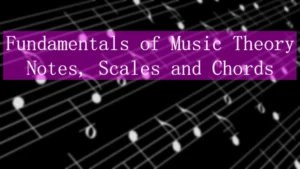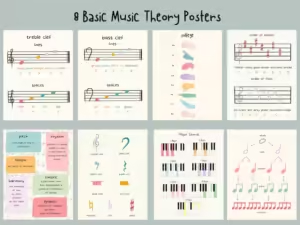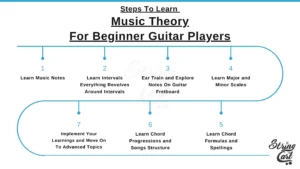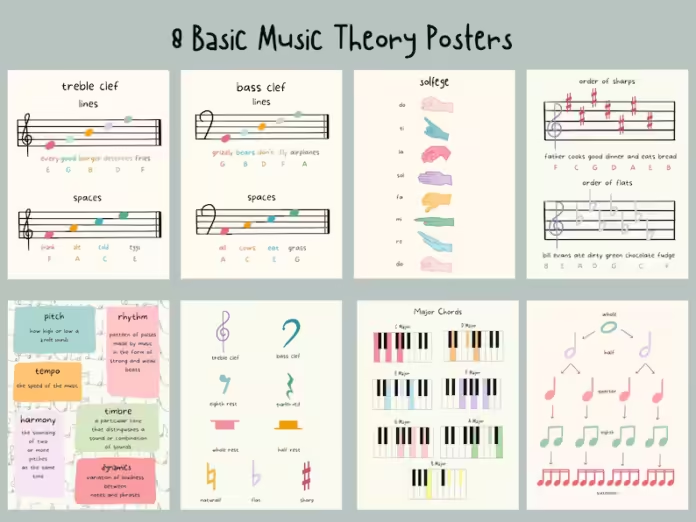
Understanding music theory is a fundamental step for anyone looking to unlock their musical potential. Whether you’re a beginner or an experienced musician, having a solid grasp of music theory can significantly enhance your ability to play, compose, and appreciate music. In this guide, we will explore simple steps to learn music theory basics that will help you on your musical journey.
What is Music Theory?
Music theory is the study of the practices and possibilities of music. It covers the fundamentals of how music works, including the structure of melodies, harmonies, rhythms, and the notation of these elements. Understanding music theory allows musicians to communicate more effectively and to understand the music they are playing or creating on a deeper level.
Why Learn Music Theory?
- Improves Musical Skills: Knowing music theory can help you understand why certain chords sound good together and how to create pleasing harmonies.
- Enhances Creativity: With a strong foundation in theory, you can experiment more confidently and creatively with your compositions.
- Boosts Communication: Being able to read and write music notation helps you communicate your ideas to other musicians.
- Increases Appreciation: Understanding the intricacies of music theory can enhance your appreciation of different musical styles and genres.
Simple Steps to Learn Music Theory Basics
1. Learn the Musical Alphabet
The musical alphabet consists of seven letters: A, B, C, D, E, F, and G. These letters represent the notes that are the building blocks of music. Familiarize yourself with these notes and their sequence, as they form the foundation of all music theory.
2. Understand Scales and Keys
A scale is a series of notes arranged in ascending or descending order. The most common scale is the major scale, which follows a specific pattern of whole and half steps: W-W-H-W-W-W-H (where W stands for whole step and H stands for half step). Learning major and minor scales, as well as their corresponding keys, is crucial for understanding melodies and harmonies.
3. Learn Intervals
Intervals are the distances between two notes. They are named according to the number of letter names they encompass, such as a major third (C to E) or a perfect fifth (C to G). Knowing intervals helps in identifying chords and understanding melodic movement.
4. Study Chords and Harmony
Chords are formed by stacking intervals on top of each other. The most basic chord is the triad, which consists of three notes: the root, third, and fifth. Learning how to construct major, minor, diminished, and augmented chords, as well as seventh chords, is essential for understanding harmony.
5. Explore Rhythm and Meter
Rhythm refers to the timing of notes in music, while meter is the pattern of beats in a measure. Familiarize yourself with common time signatures (such as 4/4, 3/4, and 6/8) and practice counting and clapping rhythms. Understanding rhythm and meter will improve your timing and ability to play in sync with others.
6. Practice Reading and Writing Music Notation
Music notation is the written language of music. Learn the basics of reading and writing notes on the staff, including the treble and bass clefs. Practice notating simple melodies and rhythms to reinforce your understanding of music theory concepts.
7. Apply Theory to Your Instrument
Theory is best learned through practical application. Take the concepts you’ve studied and apply them to your instrument. Practice playing scales, identifying intervals, and constructing chords. Experiment with composing your own music using the principles of music theory.
Tips for Learning Music Theory
- Take it Step by Step: Don’t try to learn everything at once. Break down the concepts into manageable chunks and master each one before moving on.
- Use Online Resources: There are many online courses, videos, and tutorials available that can help you understand music theory at your own pace.
- Practice Regularly: Consistent practice is key to retaining and applying music theory knowledge.
- Join a Community: Engage with other musicians who are also learning music theory. Sharing knowledge and experiences can be very beneficial.
- Stay Curious: Music theory is a vast field with endless possibilities. Keep exploring and stay curious about how music works.
Conclusion
Learning music theory basics is an invaluable step towards unlocking your full musical potential. By understanding the fundamental concepts of music, you can improve your skills, boost your creativity, and deepen your appreciation for music. Remember to take your time, practice regularly, and enjoy the process of learning. With these simple steps, you’ll be well on your way to mastering music theory and enhancing your musical journey.




